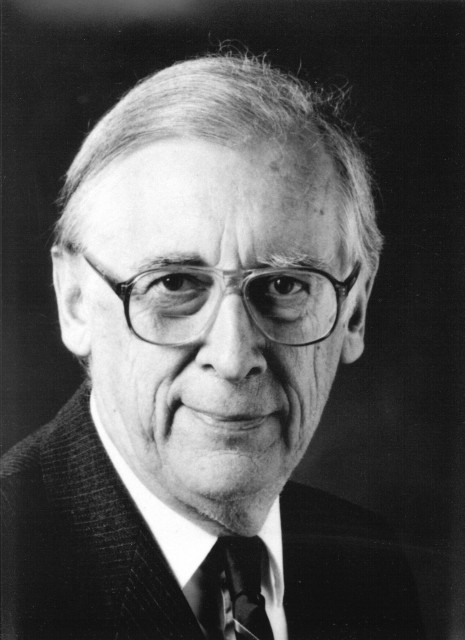John Anthony Pople
1925-2004

Pople is known for his outstanding contributions to theoretical chemistry, particularly in developing effective modern quantum-chemical methods. In approximately 500 publications he led the way in applying sophisticated computational methods to chemistry. He made seminal contributions to the theory of magnetic resonance spectroscopy, especially the high resolution spectra of complex organic molecules. His development of ab initio methods for the machine computation of the energies and other molecular properties brought the full power of quantum mechanics to chemical problems. His GAUSSIAN computational programs have made these methods available to chemists worldwide.
Born in England, Pople received his Ph.D. in mathematics from Cambridge University (1951). After a lectureship at Cambridge and a period as superintendent of the Basic Physics Division of the National Physics Laboratory (Teddington, England) he in 1964 joined the faculty of Carnegie-Mellon University, first as professor of chemical physics and later as University Professor of Natural Sciences. In 1992 he joined the faculty of Northwestern University.
Pople's many honors include the Davy Medal of the Royal Society (London, 1988), the ACS Award for Computers in Science (1991), the Wolf Prize (Israel, 1992) and the J. G. Kirkwood Medal for Outstanding Contributions in the Physical Sciences (1994).
Location in chemistry building: Basement Floor; Elevator area West Wall; Sequence 1
Source: Professor Pople